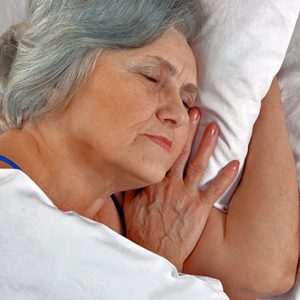It’s fairly obvious that sleeping on your stomach might not do wonders for your body or more specifically for your neck, however many people assume that sleeping on your side is the position that provides the least stress on the body. There are a few important points to consider when sleeping on your side that can make it a good sleeping posture.
Your Neck Position
When you sleep on your side your neck should be supported in what would be a neutral position. This means that it should not tilt down too much or be propped up to side. Imagine you walked around with your head tilted to the side for even 1 hour continuously. No doubt you would be sore and stiff! The same happens when we sleep with our head tilted by an inappropriate pillow height choice. If you are not sure about your pillow height, it can be useful to ask someone to take a photo of your head and neck position while lying down on your side in bed.
Your Spine and Hip Position
What many people don’t realise is that not all positions are equal when it comes to the hips and spine. When you curl up into what is considered to be a fetal position, it puts greater pressure on the spine when compared to keeping the spine straighter and hips less flexed. Letting the top knee roll over the bottom leg will create a twist in the spine. Both of these factors can create extra pressure on the back and are more likely to make you experience back pain while sleeping or when you wake up.
Knee position
When stacked one on top of each other, the pressure of the bony knees rubbing on top of each other can cause pain. This can also stretch the muscles and tendons on the side of the hip area as the top leg falls down towards the bed. Over time this can create pain on the side of the hip and thigh area. This can easily be resolved by placing a pillow between the knees. This not only cushions the sensitive bony knees, but also reduces the stretch on the hips by elevating the top leg.
So in the end, sleeping on your side can be good, as long as you use these helpful steps. If you have any pain at night, you should consult a health practitioner.

